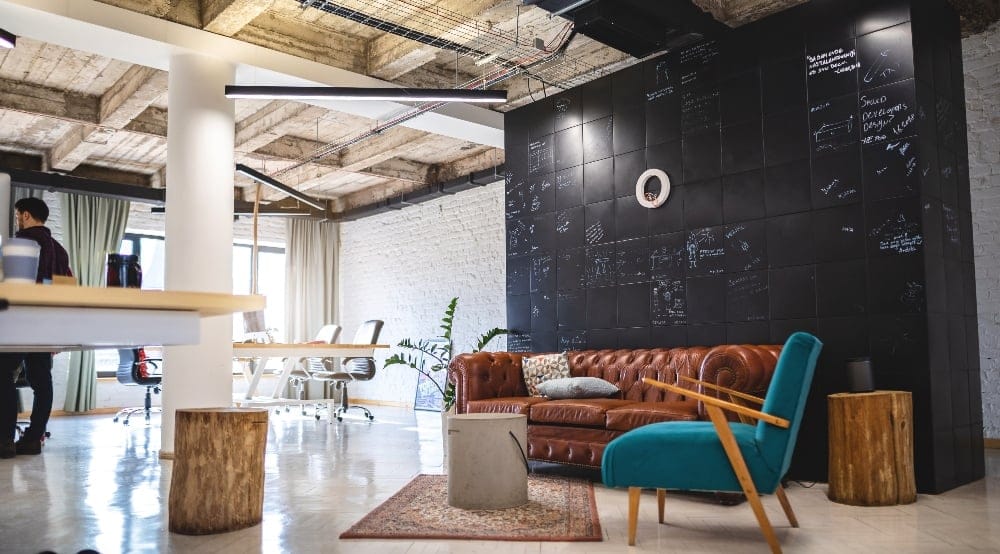
Let us help you with finding an office space
Our experts are here to help take the hard work out of finding your next office space.

The case for the office has been made. The world’s workforce will eventually emerge from its #WFH hibernation. But amid global uncertainty and unpredictable change, traditional office leases may feel like too big a commitment for some businesses.
The tonic: Flexible office space. Though it’s not your only option, it might be a good one.
Flexible office space was popularised by providers like WeWork, TOG and Regus. Offering trendy, ready-to-go workspaces, networking events and stocked kitchenettes, they paved the way for a new world of work; one that celebrates the productivity power of a breakout space – and a weekly calendar of networking events.
Attracting disruptive tech startups and bigger corporates, businesses of all sizes have gravitated towards the ease, flexibility and cost-effectiveness of this serviced office route.
The now mainstream success of flexible office space has invited many to simply call it ‘office space’. But before flex, the 25-year leases of the 1980s, and today’s traditional, seven-year London leases involve long-term commitment to the same square footage, hefty upfront costs, and the chore of having to furnish a completely empty space (and of course, clear it out once when you leave).
But today, flexible offices give you the agility to move straight in, shrink and grow your space depending on your headcount, budget accordingly with an all-inclusive cost and stay flexible with a monthly rolling contract.
Get your monthly dose of workplace insights, productivity hacks and business leadership ideas - delivered straight to your inbox.
Beyond customer-centric contracts that are as flexible as you need to be, flexible office space has changed what we have come to expect from our offices.
For example, with its links to The Hoxton, Working_From Southwark feels more like a high-end, stress-free hotel than it does an office. Second Home’s hundreds of plants don’t just give you an insta-worthy desk, they fill your day with the benefits of biophilic design, from happiness to health.
Likewise, Huckletree’s Alpha Extra Programme is a 12-week intensive accelerator course designed to help startups in their pre-seed stage.
Second Home’s hundreds of plants don’t just give you an insta-worthy desk, they fill your day with the benefits of biophilic design, from happiness to health.
And as employee wellbeing has shifted from the employee’s responsibility to the employer’s responsibility, some businesses would rather lean on workplace experts (like providers) to find easy wins.
So, if signing up to an office gives your team instant access to yoga on their lunch break and subsidised artisan pastries – and you know that employee happiness has a genuine ROI – flex is a no-brainer. It’s not just space – it’s a springboard to innovation, productivity and collaboration.
We know why flexible office space is so popular, but in a post-lockdown world, certain market shifts could drive a new wave of businesses towards it.
With its links to The Hoxton, Working_From Southwark feels more like a high-end, stress-free hotel than it does an office.
Ask us to start your office search. Tell us what you’re looking forSpeaking on the re-occupancy of office space, Lee Elliott, Global Head of Occupier Research at Knight Frank explains: “We do see value in offices going forward, but we also see significant evolution of the office product through twelve predominant dynamics. One of those dynamics is about flexibility. Over the course of the Covid crisis and beyond, there will be further drivers for the flexible market”.
The future is unclear. The operating environment is full of unknowns; moving forward, businesses concerned by this might be cautious with their plans. To ease that level of uncertainty, some will choose to start aligning their real estate strategies to ensure a sense of flexibility and freedom, which is exactly what flexible office space provides.
As we’ve said, the option for short-term, rolling contracts, combined with the flexibility to shrink and grow the amount of office space you’ve signed up for could offer some peace of mind – especially for startups and scale-ups.
Bigger businesses that were undergoing fitouts and re-location projects may have had their timelines shifted back by supply chain constraints and construction delays, and “flexible [office space] will be an area that occupiers gravitate towards to cover that delay”, according to Elliott.
Those in need of a stop-gap solution will be enticed by flex’s ‘ready-to-go’ workspaces – especially considering the speed at which you can start your search and move in two weeks later.
Under social distancing guidelines, offices may no longer be able to welcome the same number of employees as they used to. For a period of time, businesses that are tied into traditional leases might find themselves with just 50% of their previous office capacity.
Naturally, this will create an overhang of employees who need space to work in. Some businesses will embrace a rota system and others will continue to work from home, but not everybody wants to.
Elliott explains: “Of course, many will continue to use working from home strategies to enable that, but some might actually go in to flex space because they’re unwilling to go down the remote working route”.
Younger generations will be itching to get back – especially those who have spent the past few months working from their bedrooms, sharing a WiFi connection with four other flatmates and having to walk to a park to enjoy the sun.
Responsive businesses who recognise the value of office space might choose to place these employees in satellite offices near their homes or in flexible overflow space near company HQs.
As Elliott explains: “I think we’re going to see significant business restructuring coming in. We’ve got digital transformation pressures emerging with great gusto out of the Covid-19 crisis and we know that digital restructuring teams are often created by businesses and put away from motherships, often in flexible space”.
Separating initiatives like these from the business-as-usual environment and taking up a creative, collaborative project space can help drive innovation and inspire outside-the-box thinking.
When it comes to office space, there’s no one size fits all. Flexible office space is just one of your options. For some businesses, traditional office space might be a better fit right now, as it’s great for stamping your brand on and having complete privacy, security and control. You can even let your imagination run wild with layout and design (think indoor sandpits and pet rooms).
But whatever your office space requirements, we’ll be able to advise you on your options and carry out your search.

Our experts are here to help take the hard work out of finding your next office space.